 +86-572-8086381 / 8282992
+86-572-8086381 / 8282992  hzjfence1@hzjfence.com
hzjfence1@hzjfence.com 
Nov 12, 2025
Choosing the right material for your boundary is a key decision for any homeowner. The debate often comes down to the classic, natural appeal of wood versus the modern, low-maintenance technology of PVC (also known as vinyl). Both options offer excellent ways to define your space, enhance security, and elevate your property's aesthetics. By focusing purely on the attributes of the product, we can clearly compare these two leading fencing solutions.
| Feature | Wood Fencing | PVC (Vinyl) Fencing |
| Material Composition | Natural lumber (e.g., cedar, pine, redwood). | Polyvinyl Chloride (PVC) resin, fortified with impact modifiers and UV inhibitors. |
| Resistance to Elements | Susceptible to moisture damage, rot, decay, and insect infestation (e.g., termites). | Impervious to moisture, rot, and pests. Will not splinter or decay. |
| Lifespan | Typically 10–15 years before significant deterioration, even with maintenance. | Can last 20–30+ years, often with a lifetime limited warranty from the manufacturer. |
The Edge: For sheer longevity and resistance to environmental breakdown, the modern PVC garden fence is the clear winner. Its advanced composition ensures it retains its structural integrity for decades without the material degradation inherent in wood.
The most significant difference between these two materials lies in the care required over their lifespan.
Wood Fencing: Requires regular, significant maintenance to preserve its appearance and structure. This includes annual or biennial staining, painting, or sealing to protect against moisture and UV damage. Failure to maintain wood leads to graying, warping, and cracking.
PVC/Vinyl Fencing: The definition of low-maintenance. It never needs painting, staining, or sealing. Cleaning simply requires a hose-down with water, mild soap, or a pressure washer to remove dirt, mildew, or algae. This minimal upkeep is a major selling point for vinyl fencing products.
The Edge: The virtually maintenance-free nature of the vinyl fencing solution saves homeowners significant time and money over the life of the product.
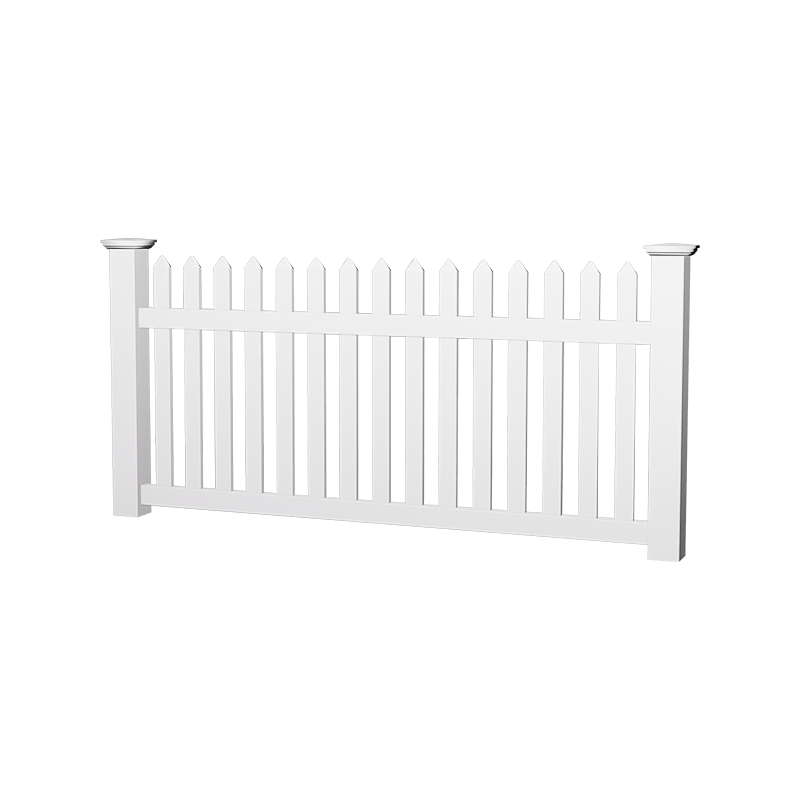
Wood Fencing: Provides an authentic, organic look that naturally blends with landscapes. The grain patterns and inherent color variations are highly prized for creating a traditional or rustic feel. It can be painted or stained in any color.
PVC/Vinyl Fencing: Offers a clean, consistent, and uniform appearance. Modern manufacturing techniques allow PVC to mimic the look of wood with embossed textures and a variety of color options, including white, tan, and shades of gray. The look is often described as crisp and contemporary.
The Edge: The choice here is purely subjective. If you prefer the classic, variable texture of natural timber, wood is your preference. If you value a perfectly uniform and immaculate surface that never needs refreshing, then the PVC/vinyl option is superior.
Initial Cost: Wood is typically the least expensive option up front, making it a popular choice for budget-conscious projects.
Total Cost of Ownership (Value): While wood has a lower initial price, you must factor in the recurring costs of paint, stain, sealant, brushes, and the time/labor for maintenance every few years. The vinyl fencing material, while more expensive initially, has a zero recurring maintenance cost and a longer lifespan, resulting in a significantly lower Total Cost of Ownership over 20-30 years.
The Edge: Vinyl offers superior long-term value and predictability due to its longevity and lack of ongoing expenditure.
When deciding between a traditional wooden fence and a pvc garden fence (or vinyl fencing as it's often called), the decision rests on prioritizing key product attributes.
Choose Wood if your primary goal is the lowest initial investment and an authentic, natural aesthetic that you are willing to maintain regularly.
Choose PVC (Vinyl) if you prioritize maximum durability, minimal long-term maintenance, and a clean, consistent look that will hold its appearance for decades without fading or decay.
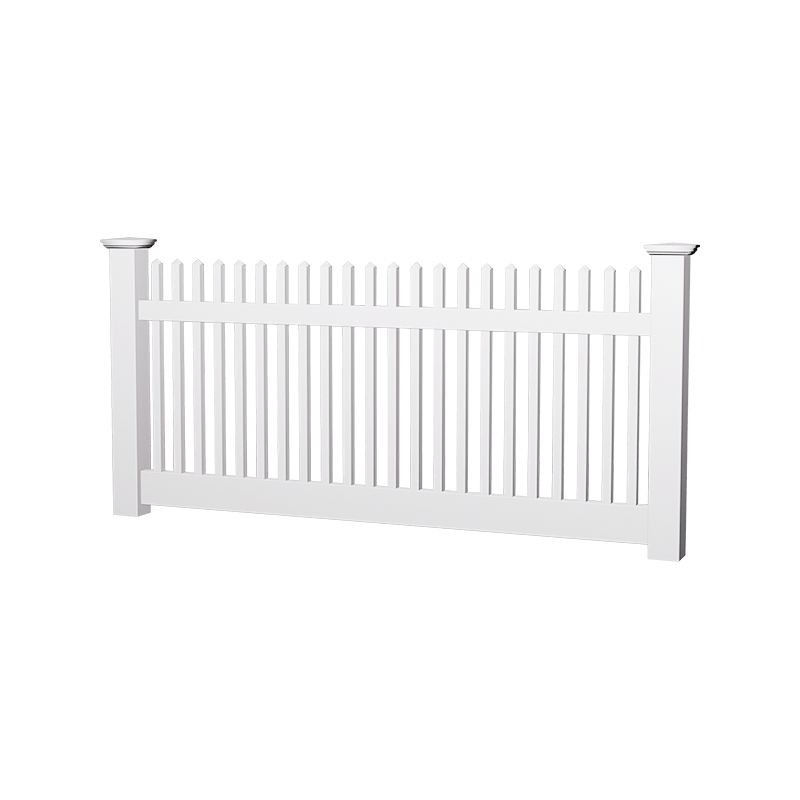
Our 1.5"x1.5" Horizontal Picket Fence, the ultimate garden solution made from 100% virgin PVC for unmatched durability and low maintenance. Designed for easy DIY installation, this fire-proof fence re...
See Details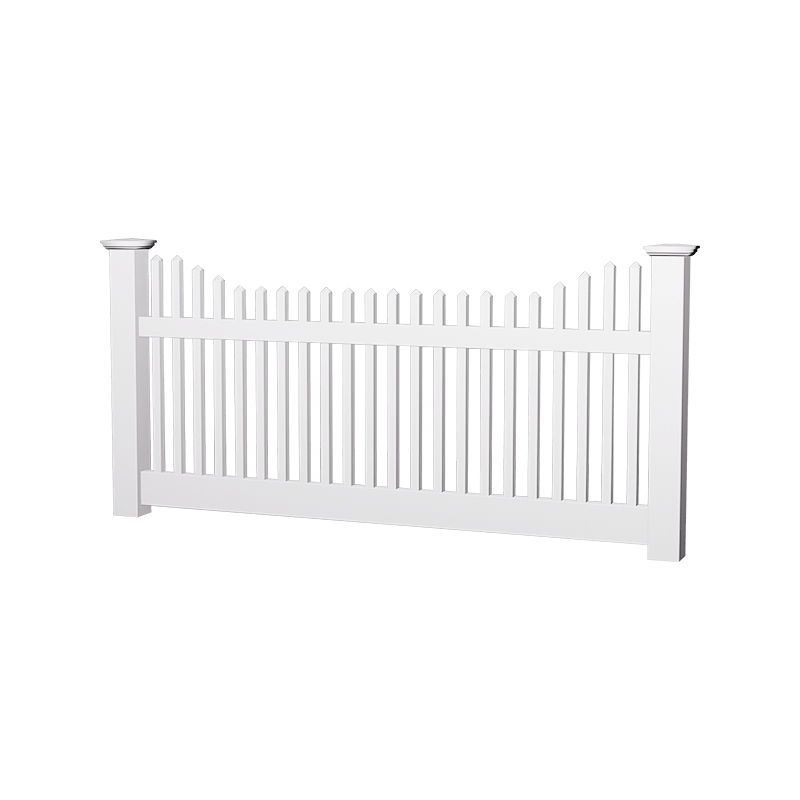
The Special-Shaped Picket Fence, the perfect addition to any home. Crafted from 100% virgin PVC, this fence combines durability and elegance with low maintenance requirements. Designed for easy DIY in...
See Details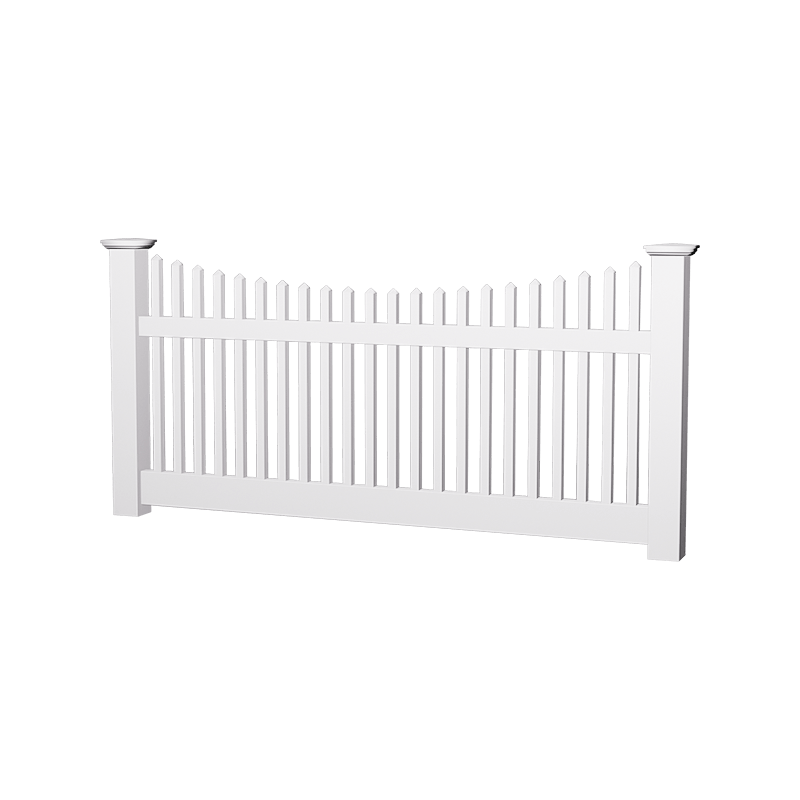
The Special-Shaped Picket Fence, the perfect addition to any home. Crafted from 100% virgin PVC, this fence combines durability and elegance with low maintenance requirements. Designed for easy DIY in...
See Details
Enhance your home’s exterior with our Traditional Straight Spade Fence, crafted from 100% virgin PVC for exceptional durability and style. This low-maintenance solution is designed for easy installati...
See Details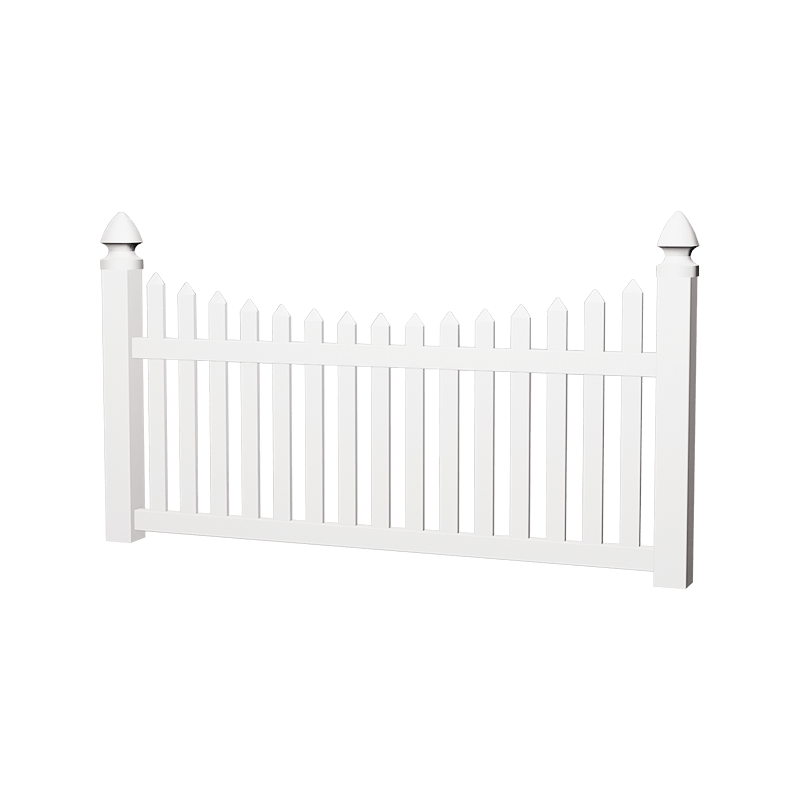
Transform your outdoor space with our 7/8"x3" Outdoor Picket Fence, specifically designed for farm use and outdoor applications. Crafted from 100% Virgin PVC, this durable and high-impact resistant fe...
See Details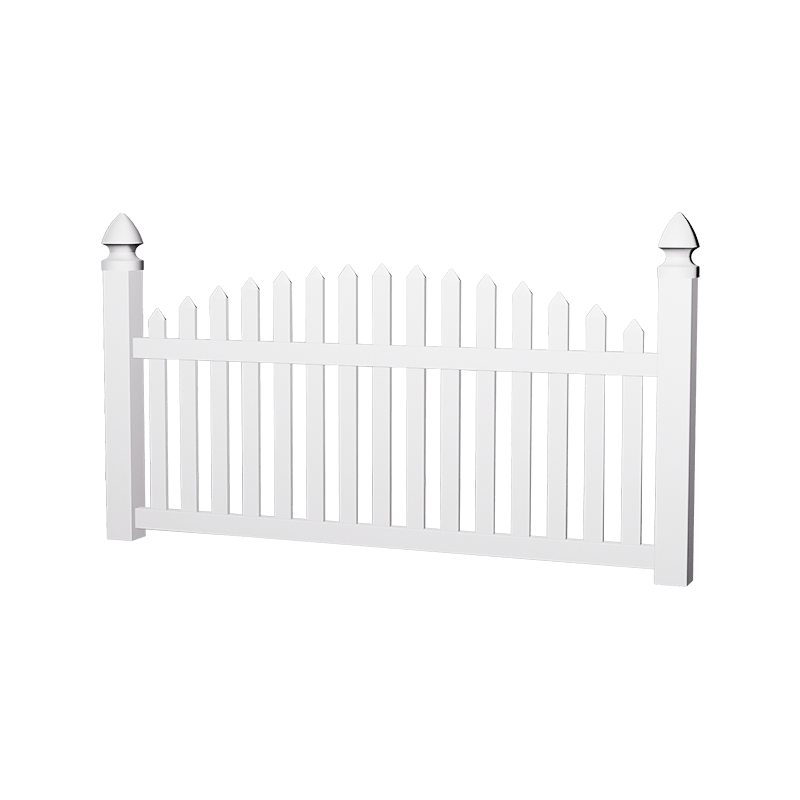
Enhance your farm's aesthetic and functionality with our PVC Arched Picket Fence. Crafted from 100% virgin PVC, this durable and stylish fencing solution combines the classic charm of traditional pick...
See Details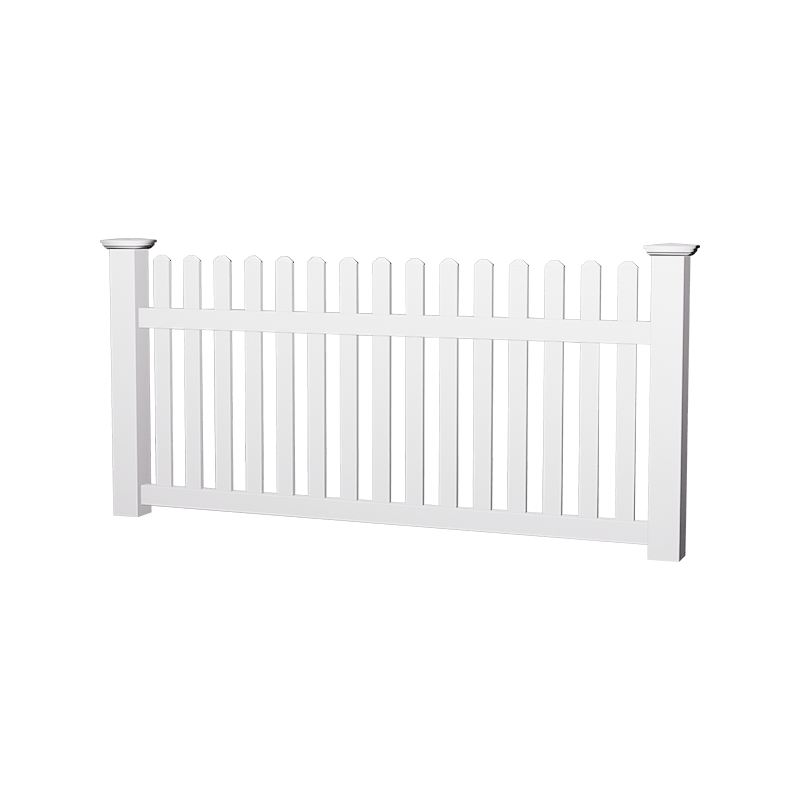
Our durable and versatile Picket Fence, designed specifically for farm use. Crafted from 100% virgin PVC plastic, this fence panel is not coated, ensuring superior quality and longevity. With dimensio...
See Details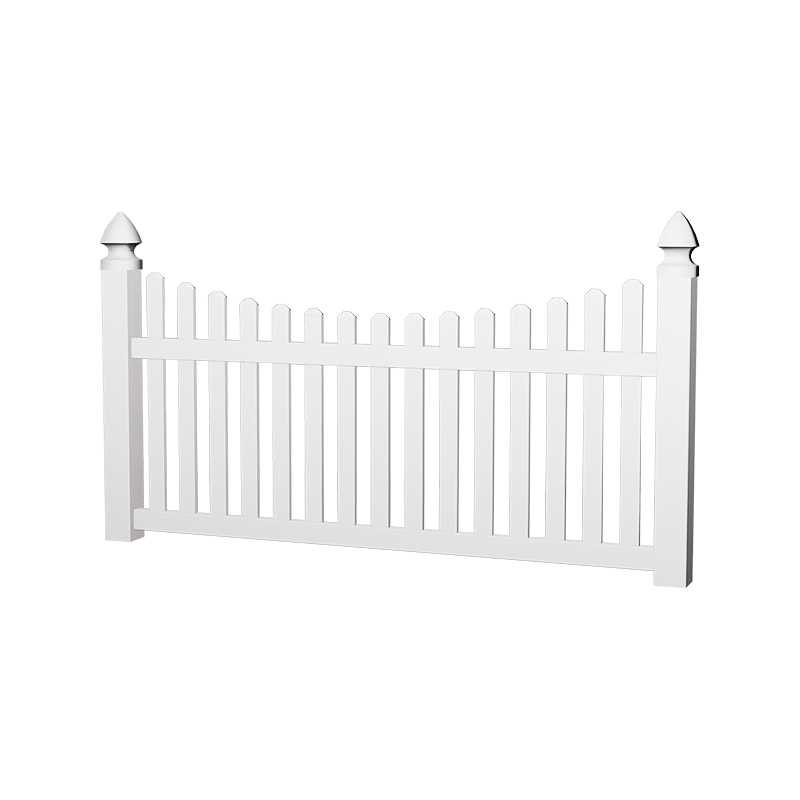
Introducing our 7/8"x3" Plastic Picket, designed specifically for farm applications. Crafted from 100% virgin PVC, this picket is not coated, ensuring maximum durability and resistance to impacts. Wit...
See Details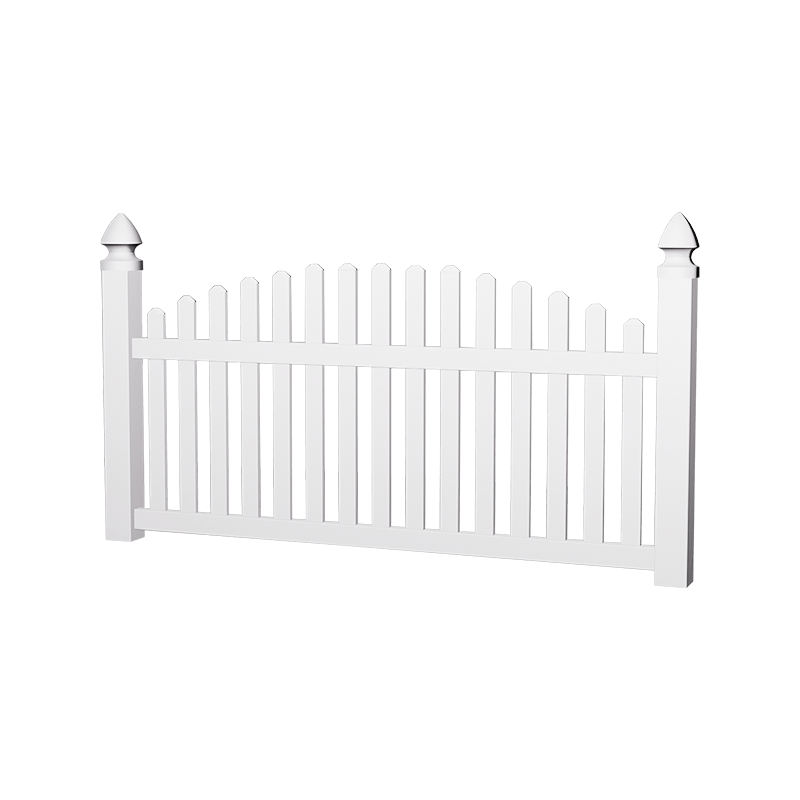
The Dog Ear Top Garden Fence, the ultimate solution for your farm fencing needs. Crafted from 100% virgin PVC, this fence is designed to withstand the elements without the worry of rot or decay, makin...
See Details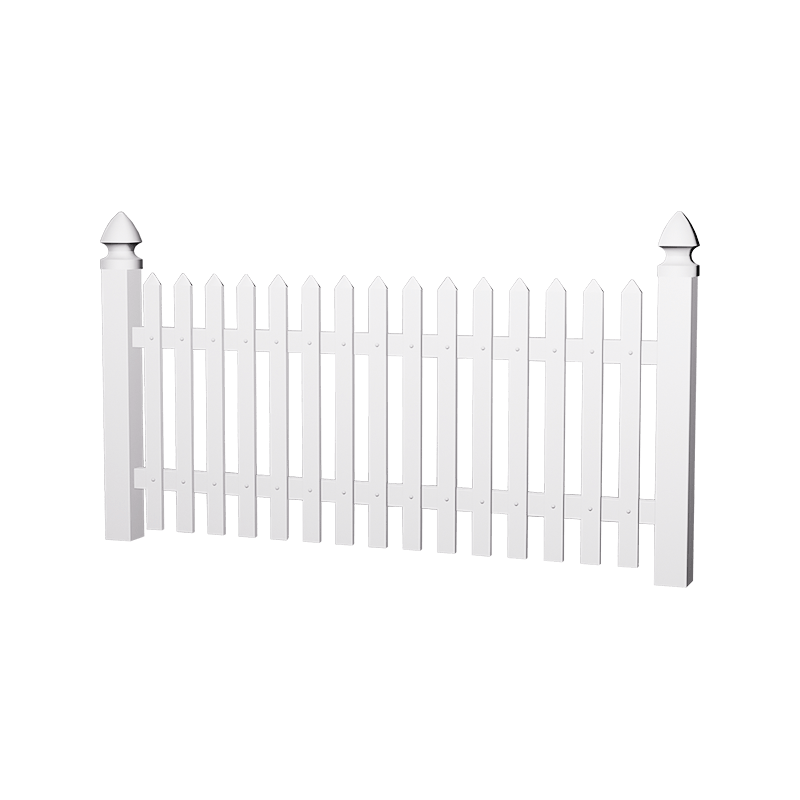
Decorate your outdoor spaces with our durable and stylish PVC Face Mounted Pickets Fence. Designed for easy installation and long-lasting performance, this fence is perfect for residential and commerc...
See Details
Our White Vinyl Fence, measuring 4'H x 8'W, designed for both functionality and aesthetics. Made from 100% virgin PVC plastic, this fence is not coated, ensuring unmatched durability and resistance to...
See Details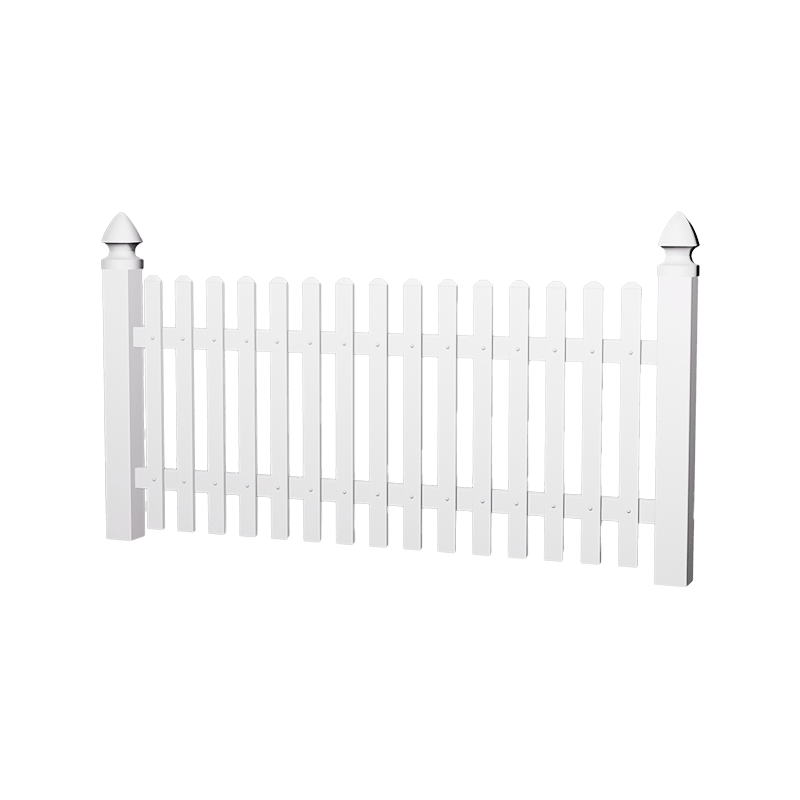
The Traditional Dog Ear Picket is an ideal choice for warehouses, combining aesthetic appeal with practicality. Made from 100% virgin PVC, this durable, low-maintenance fence resists rotting and water...
See Details We are a professional manufacturer engaged in the research, development,
production, sale, and service of PVC fences and PVC flooring.
We are a professional manufacturer engaged in the research, development,
production, sale, and service of PVC fences and PVC flooring.
Contact Us
Mobile
Copyright © Deqing Huazhijie Railing & Fencing Co.,Ltd. All Rights Reserved.

 English
English عربى
عربى 中文简体
中文简体 Español
Español